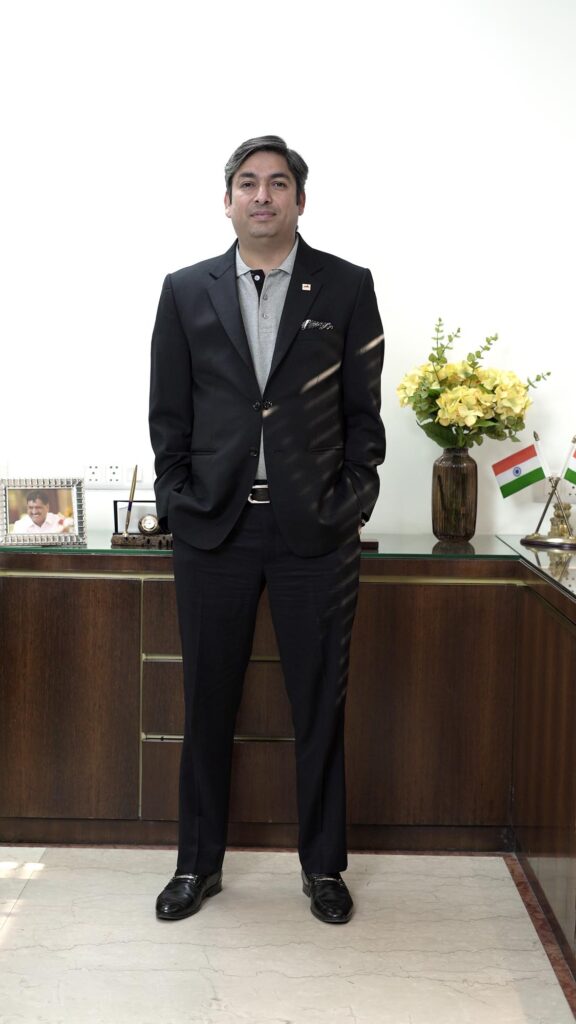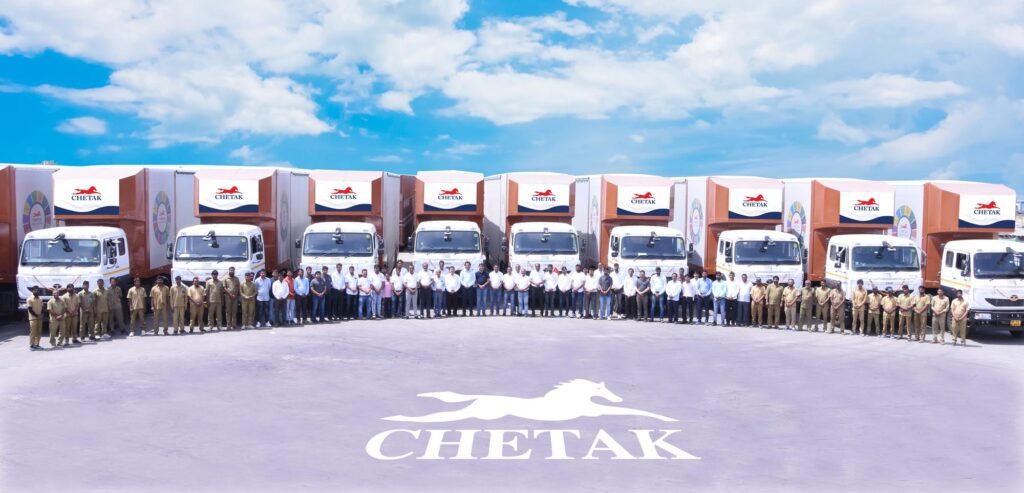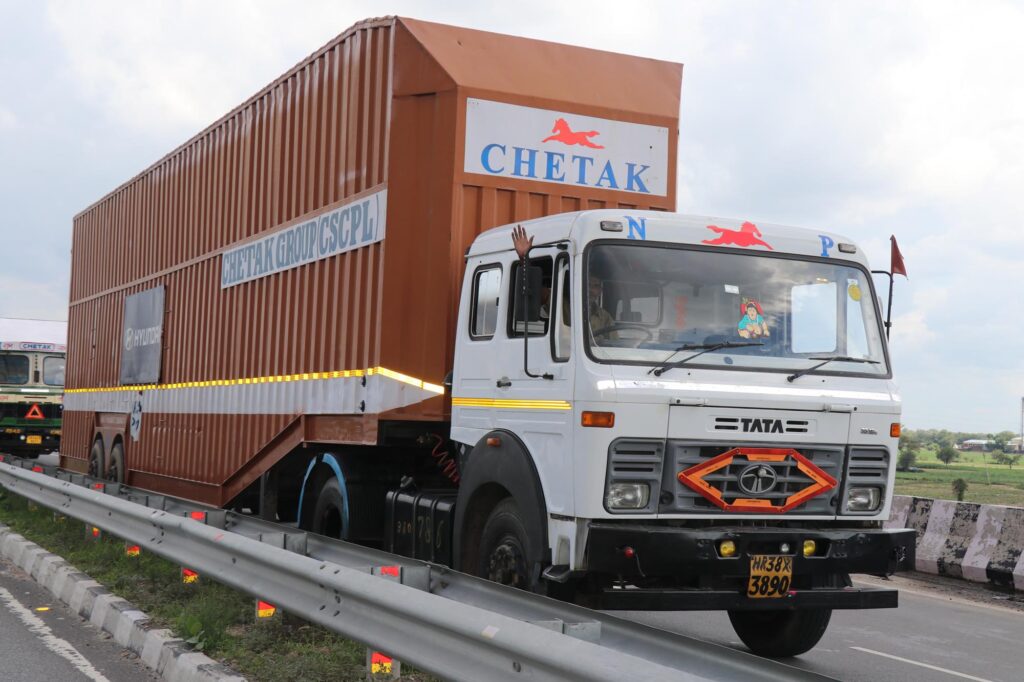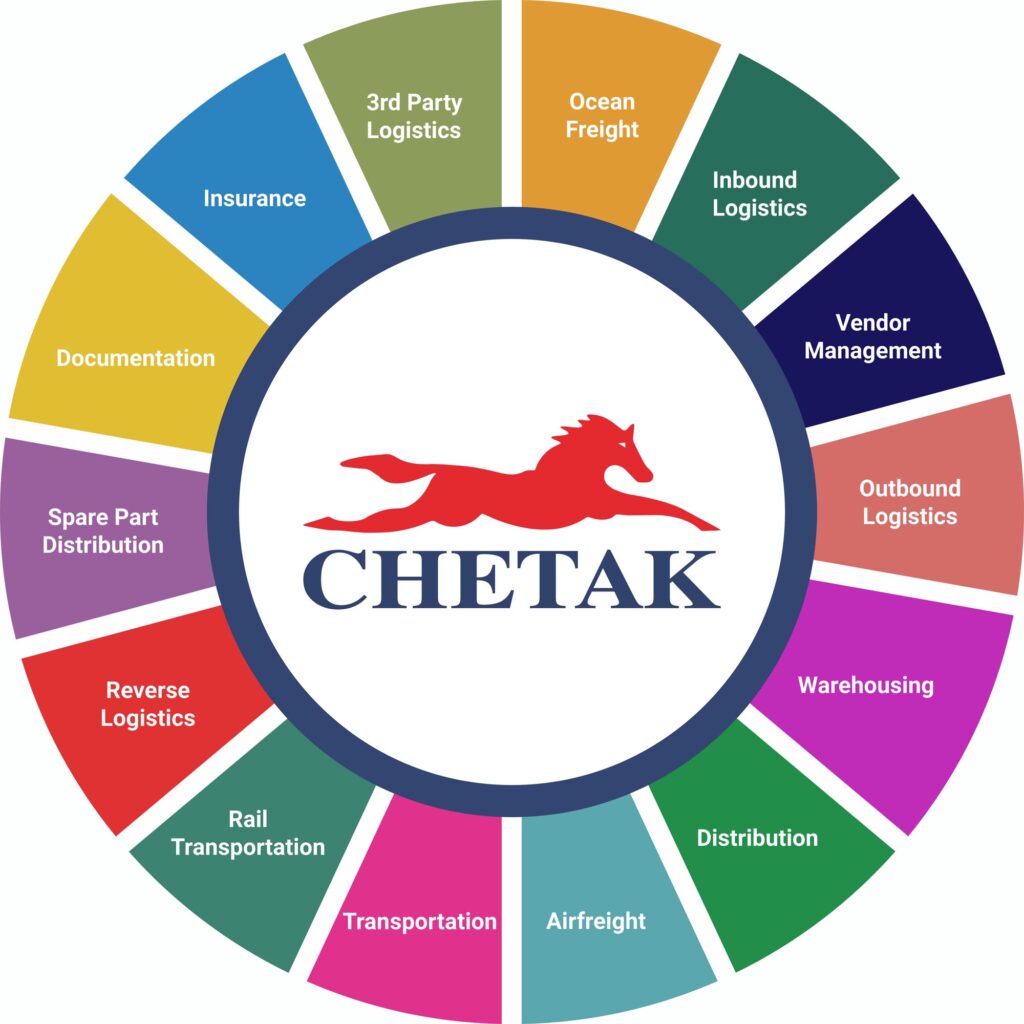
In this detailed conversation with Rajesh Rajgor, Sachin JKS Haritash, Director of Chetak Logistics, shares insights into the operations, challenges, and innovations driving one of India’s leading logistics companies. Haritash discusses Chetak’s comprehensive service offerings, tailored client solutions, and commitment to sustainability. He also highlights the company’s efforts to address industry challenges such as driver shortages and emphasizes the importance of modern fleet management and driver welfare programs. Under the visionary leadership of founder Shri Jai Karan Sharma, Chetak Logistics has earned numerous accolades and continues to set benchmarks in the logistics industry.
Chetak Logistics needs no introduction in the logistics sector, renowned for its comprehensive and innovative approach to 3PL and 4PL services. Serving the automotive, construction, and farm equipment industries, their operations include inbound and outbound logistics, spare parts transportation, and warehousing. With a robust infrastructure and a client-centric approach, Chetak Logistics has set benchmarks in the industry, gaining the trust of major national and global automobile OEMs such as Maruti, Hyundai, Tata, JCB, TAFE and more. Their ability to tailor services to meet specific client needs across diverse geographies underscores their commitment to excellence.

Under the visionary leadership of their founder, Shri Jai Karan Sharma, Chetak Logistics has garnered significant recognition and accolades for its outstanding performance. “TAFE honored us as the best outbound Logistics Service Provider, and Zee Real Heroes Awards recognized our founder, Shri Jai Karan Sharma, for his contribution to the socio-economic development of India,” says Sachin JKS Haritash, Director of Chetak Logistics. The Economic Times recently recognized their founder as the Logistics Man of India, and the government of India issued a postal stamp in his honor, acknowledging his contributions to the logistics sector and his outstanding philanthropic work.
Navigating the complexities of logistics, Chetak Logistics encounters significant challenges, foremost among them being the availability and retention of drivers. According to Haritash, this is a critical issue for the company. “The foremost challenge that we face is the availability of drivers and retaining them,” he emphasizes. This challenge is compounded by clients who impose demanding transit time deadlines, increasing the risks associated with road accidents.

Despite these formidable hurdles, Chetak Logistics remains optimistic about the future, particularly in the realm of green fuel-based transportation. Haritash outlines several initiatives aimed at addressing these challenges and seizing new opportunities. “We envision building fleet yards along highways, establishing repair centers equipped with charging stations, and enhancing our infrastructure to provide hygienic rest facilities for drivers,” he explains. These measures not only aim to alleviate existing challenges but also position Chetak Logistics at the forefront of sustainable and efficient logistics solutions in India.
Modern Fleet and Driver Welfare Initiatives
As of today, Chetak’s fleet comprises solely Tata trucks, including single axle 9 tons, 18 tons, Tata Signa 4028, and Tata Prime 27 tons. “As third-generation entrepreneurs, we have been using only Tata make trucks and train lots for the last 60 years,” says Haritash. Their fleet’s modernity is evident, with 40% of vehicles being BS6 compliant. “Our average fleet age is six years, and we’ve carried out innovative modifications to accommodate eight big cars with LOHR-designed trailers,” he continues. Although the fleet currently runs on diesel, Haritash is optimistic about the future of LNG and EVs in logistics. “I feel LNG will be a success in long-haul transportation, whereas EVs will initially work best for shorter routes up to 300 km until the charging infrastructure is in place.”

Innovation is a cornerstone of Chetak’s fleet management, evident in the use of LOHR trailers with curtains and high-grade steel to reduce body weight, enabling more weight to be carried. “We don’t see any challenge with modern vehicles; drivers benefit from better, more spacious cabins which lead to improved efficiency.”
Maintenance of the fleet is streamlined through a dedicated KAM-led account manager from Tata, managing the fleet via an AMC arrangement. “We have an arrangement and an AMC with Tata Service, wherein we have defined SLAs timely to on-road vehicles. We are very happy with Tata’s after-sales service and spare part availability. Besides, they also provide training to our in-house mechanics continuously,” shares Haritash.
The company employs over 5,000 drivers, directly or indirectly, and organizes various initiatives to attract and retain them. “To address the issue of driver shortage, we keep organizing various activities to attract and retain drivers. For instance, we organize eye check-up camps for drivers in their villages, we distribute helmets to drivers who commute to work on two-wheelers. We also support education for the children of drivers, especially girl child education. Our team keeps meeting village sarpanches to understand the needs of drivers and their families so that our social intervention can align with their needs,” he explains.
The Chetak Foundation, focused on improving the quality of life for underprivileged truck drivers, provides eye check-ups, helmet distribution, educational support, financial workshops, and safety training. Haritash elaborates, “We have set up the Chetak Foundation which focuses on improving the quality of life of underprivileged truck drivers. We organize eye check-up camps for drivers. We distribute helmets to drivers who commute to the office by two-wheelers. We also support girl child education. We also provide financial help to the drivers and their families. Our teams keep meeting village sarpanches to understand the needs and requirements of drivers.”
Green Warehousing and Client-Centric Solutions
Chetak’s extensive warehousing facilities, spanning over 2 million square feet, are strategically located across India to support its logistics operations. “Chetak takes pride in its over 2 million sqft ‘A’ grade warehousing facilities spread across India. Our warehouses are equipped with electric material handling equipment to reduce pollution. Our company-owned warehouses are PU floored which makes warehouses as smooth as OEM shop floors. All warehouses are being monitored through the central surveillance team at the Head Office,” he highlights. Committed to sustainability, Chetak has implemented solar panels on warehouse rooftops and uses electric or CNG-driven material handling equipment. “We are building green warehousing by implementing solar panels on the rooftops of big warehouses. Also, all our material handling equipment is now Electric or CNG-driven,” he adds.
Their client-centric approach ensures high customer satisfaction. Haritash shares an example, “For instance, we’ve ensured 99.50% timely deliveries for Ford, reducing their premium freight costs to negligible amounts. We provide consolidation hubs and direct delivery to factories to achieve Just in Time inventory for OEMs and vendors.”
In terms of insurance, Chetak offers transit insurance and efficiently handles claims, providing all necessary documents to customers to help them raise claims through their underwriters. “We provide all necessary documents to customers to help them raise claims through their underwriters,” Haritash states.
Fuel costs are managed through the use of debit cards and IOCL cards, minimizing cash transactions. “We provide debit cards to each driver and IOCL cards to minimize cash transactions, which leads to transparency and accountability,” Haritash explains. The company uses Apollo and MRF tyres, managed through integrated in-house software for expense management. Freight rates are revised based on changes in fuel prices or contractual agreements. “Freight rates are revised by companies whenever there is a change in fuel prices (up or down) by more than 5 percent or as agreed in the contract,” he says.
Chetak Logistics has achieved significant growth, with a 20% year-on-year increase, and aims for similar growth in FY 2024-25. “We are growing at 20% YOY and in 24-25 we looking forward to a similar growth of 20-22%. We are planning to move towards green deliveries and green warehousing,” reveals Haritash.
Through innovation, a strong focus on sustainability, and dedicated driver welfare programs, Chetak Logistics continues to set benchmarks in the logistics industry. As it looks to the future, the company remains committed to growth, customer satisfaction, and the well-being of its employees and the communities it serves.